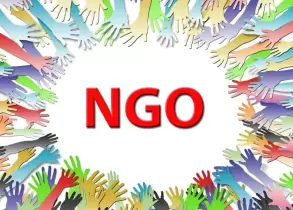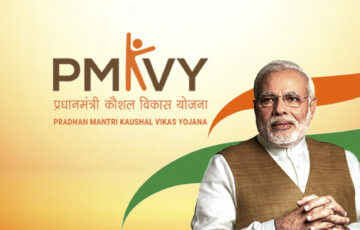Civil society and its role in human development
Relevance
- GS Paper 2 Important aspects of governance, The role of NGOs, various groups and associations, institutional and other stakeholders.
- Tag: #governance #civilsocieties #ngo #goodgovernance #humandevelopment.
Civil society, often referred to as the “third sector,” comprises a diverse range of organizations and individuals outside of government and the private sector. These organizations, from local community groups to international non-governmental organizations (NGOs), play a pivotal role in promoting human development.
Human development refers to the process of enhancing people’s opportunities and quality of life. It encompasses various dimensions, including health, education, income, and empowerment.
In this article, we will explore the multifaceted impact of civil society on human development, with a focus on health, education, and human resources.
Civil Society and Health
- Healthcare Access: Civil society organizations often fill gaps in healthcare services, particularly in underserved or marginalized communities. They provide critical healthcare services in conflict and disaster zones. Their efforts save lives and alleviate suffering, particularly in regions where government healthcare infrastructure is inadequate.
- Community Health Initiatives: Local NGOs and community-based organizations run health programs that target specific health issues, such as maternal and child health, disease prevention, and nutrition.
- Many civil society groups train and deploy community health workers to provide basic healthcare services in remote areas. These workers serve as a bridge between underserved communities and the formal healthcare system.
- Vaccine Distribution: Civil society organizations are essential partners in global vaccination campaigns. Examples include the Global Alliance for Vaccines and Immunization (GAVI), which helps distribute vaccines to impoverished regions, contributing to improved health outcomes.
- HIV/AIDS Advocacy: NGOs like amfAR (The Foundation for AIDS Research) conduct research, raise awareness, and advocate for policies to combat HIV/AIDS. They play a pivotal role in education and prevention efforts, ultimately reducing the spread of the disease.
- Mental Health Support: Civil society groups focus on reducing stigma, providing counseling, and creating awareness about mental health issues, contributing to overall well-being.
- Emergency Relief: NGOs such as Doctors Without Borders and the Red Cross respond swiftly to humanitarian crises, providing medical assistance and relief in conflict and disaster zones.
Civil Society and Education
- Expanding Access: Civil society often works to increase access to education, especially for marginalized and disadvantaged populations.
- Non-Formal Education: Civil society organizations such as Pratham in India run programs to boost literacy rates among children and adults. Education is a fundamental building block for human development, and these initiatives help close educational gaps.
- Vocational Training: NGOs frequently offer vocational training and skill development programs to enhance employability and income generation among youth.
- Girls’ Education: Civil society plays a pivotal role in advocating for and implementing programs that promote girls’ education, thereby addressing gender disparities in education.
- In countries like India, SHGs have empowered women by providing access to microfinance and support for income-generating activities. This economic empowerment enhances women’s role in decision-making and improves their overall well-being.
- Advocacy for Quality Education: NGOs like Room to Read work to ensure children have access to quality education. They build schools, libraries, and provide educational resources, addressing disparities in educational opportunities.
- Innovative Teaching Methods: Civil society often pioneers innovative teaching methods and technologies. For instance, organizations like Khan Academy provide free online educational resources, democratizing access to education on a global scale.
Civil Society and Human Health
- Empowering Communities: Civil society organizations empower individuals and communities by providing them with the skills and resources needed to improve their economic and social well-being.
- Microfinance and Self-Help Groups: Microfinance institutions and self-help groups (SHGs) promote financial inclusion and entrepreneurship, particularly among women.
- Skill Development: Many NGOs offer training and capacity-building programs that equip people with skills relevant to the job market, thereby enhancing human resources. They frequently offer skill development and vocational training programs. In India, organizations like National Skill Development Corporation (NSDC) collaborate with various partners to equip the workforce with relevant skills. collaborate with various partners to equip the workforce with relevant skills.a
- Advocacy for Workers’ Rights: Labor unions and worker advocacy groups within civil society play a vital role in safeguarding workers’ rights, advocating for fair wages, and improving working conditions.
- Innovation and Entrepreneurship: Civil society can foster an environment of innovation and entrepreneurship, contributing to economic growth and human development. For example, Kiva provides microloans to entrepreneurs in underserved communities, promoting economic growth and self-reliance.
- Youth Empowerment: Youth-focused NGOs like the YouthBuild program empower young people by providing education, leadership training, and job skills. This not only boosts employment but also fosters civic engagement and social responsibility.
- Advocacy for Labor Rights: Labor-focused NGOs like the International Labour Organization (ILO) advocate for workers’ rights, helping to create safe working conditions and fair wages. By improving labor standards, they contribute to the overall well-being of workers and their families.
Challenges Faced by Civil Society
- Funding and Sustainability: Many civil society organizations rely on donations and grants. Ensuring their financial sustainability remains a challenge, and they often have to diversify funding sources.
- Government Restrictions: In some countries, governments impose strict regulations and restrictions on civil society organizations, hindering their work.
- Political Interference: Civil society often faces political pressure, making it difficult to maintain independence and advocate for human development issues without bias.
- Coordination and Collaboration: Collaboration among civil society organizations, governments, and international bodies is essential for addressing complex issues like climate change, poverty, and pandemics effectively.
- Political and Legal Constraints: In some regions, civil society faces restrictions on its activities. Advocating for legal frameworks that protect civil society and allow it to operate freely is crucial.
- Evaluating Impact: Measuring the impact of civil society initiatives can be challenging, but it’s vital for accountability and resource allocation.
Civil society’ global impact is profound, transcending borders and addressing issues that affect humanity as a whole. However, civil society faces numerous challenges which must be addressed to further enhance its effectiveness. As we move forward, recognizing and supporting the indispensable role of civil society in human development is essential for creating a more equitable and prosperous world for all.
|
Impact on Democracy and Governance
Global Perspective
|
| Mains Question
In the context of human development, critically analyze the multifaceted role of civil society, its impact on health, education, and empowerment, and the challenges it faces. |







